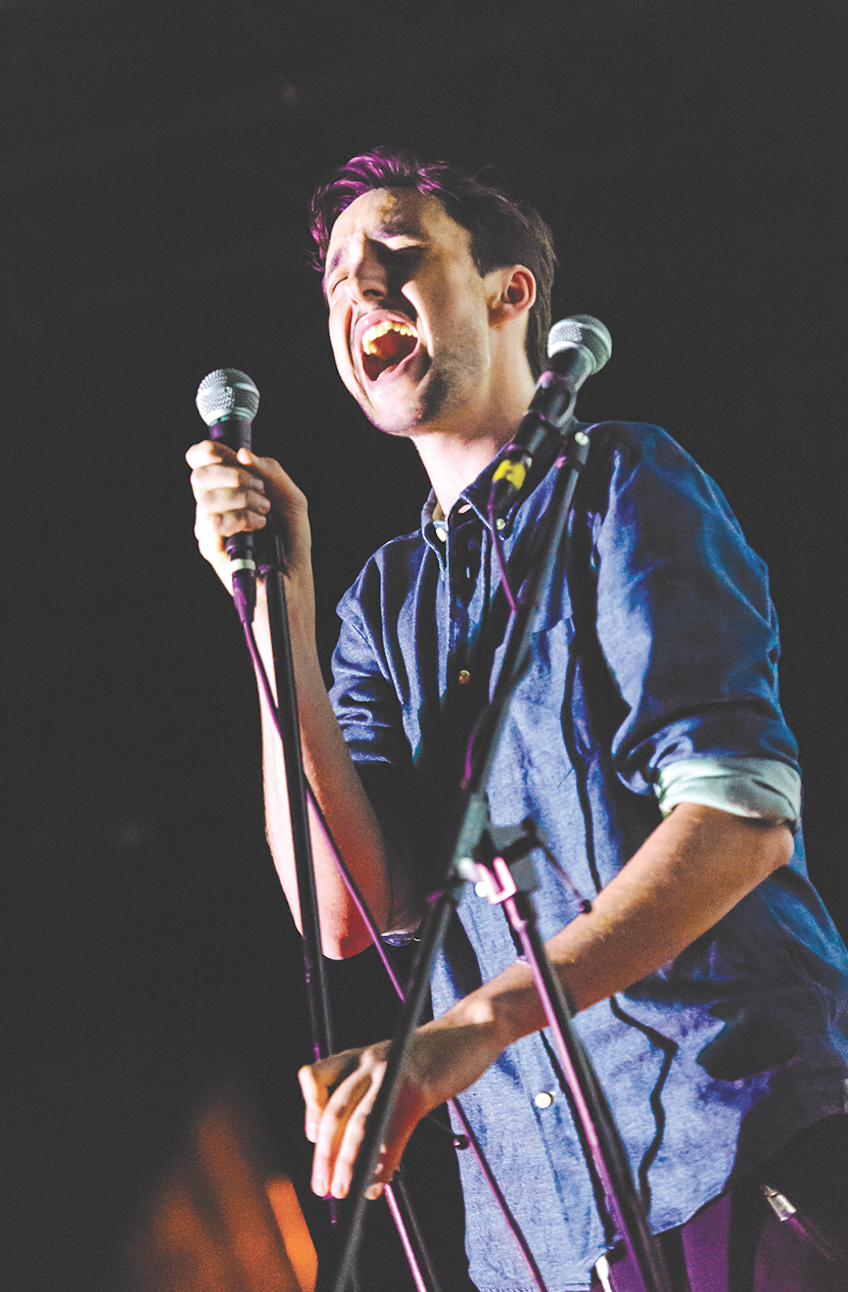How To Dress Well


Where does success start? It seems we only hear of the garages and the basements in which our favorite art is birthed, but it runs deeper. It’s an intrinsic part of a person’s psyche, an almost parasitic hunger for genuine creation. For those who have it, this parasite gets fed with or without an audience; there’s no choice. For Tom Krell, the diet he provided his creative hunger was so transcendent we all demanded a plate. How To Dress Well is the moniker Krell has given the musical part of his life. The genre-defining alternative R&B wunderkind still goes by Tom for the other stuff. The Colorado-raised Krell has been walking a tightrope for the past six years between touring artist and philosophy Ph.D. student at DePaul in Chicago. The rapid and unexpected success of How to Dress Well in 2010 made Krell put his studies on hold, if only for a moment. ELEVEN recently caught up with Krell to discuss life, art, and inspiration through opposition of trends on his new record Care. He plays Oct. 18 at Mississippi Studios. (Tickets here.)
Eleven: You started out kind of anonymous, didn’t you? You posted your music with the stage name and no pictures or anything.
Tom Krell: It was anonymous because people outside of my circle discovered the music without me planning that. I was sending it out to my friends and all my friends knew it was me. There wasn’t a press picture or anything. I was just sending music out to my people. I wasn’t doing anything other than making music.
Eleven: Can you tell me a little bit about that early time in your career? How did you respond to the critical successes and immediate recognition you got?
TK: It was bomb. There’s not a lot to say. It’s like, “What?! Sick! Oh my god!” Literally all of my favorite music writers are into this shit that I’m doing. And I’m a pretty naive person, I just did it for joy. All of it has just been for joy, so anytime there’s any success on any level over the last six years, I’m just like, “What?!”
Eleven: When was the first time that you realized you could do this for a living?
TK: I don’t really think about it like that. I was a graduate student so I was used to being broke. Then it was like, “Oh, I’m making some money doing that! Oh! I’m making a little bit more money doing this!” It wasn’t like one day I signed this or that contract and it got me the lifestyle that I wanted. I just kept realizing that “Oh damn, this is going to work.” It was so cool. Honestly it’s pretty dreamy. The whole thing is pretty dreamy still.
Eleven: I think art often overlaps in pretty weird ways. Has music always been your focus or have you explored other creative outlets, and have those influenced your music production at all?
TK: Poetry has always been extremely important to me. When I finished undergraduate school I wanted to go do an MFA in poetry. I applied for both an MFA in poetry and graduate school for philosophy. I ended up getting into both programs and choosing philosophy because I wanted to live in New York City.
I’m really bad at visual art, extremely terrible. I remember drawing classes in middle school I was just like, “I fucking suck at this.” But I take heaps of inspiration from extramusical sources. Like on this record in particular one thing that keeps coming to my mind is the Xavier Dolan film Mommy. It’s this amazing film about this very troubled teenage boy and this single mom. There’s this one scene in the film where they’re just battling each other. It’s such intense domestic violence and turmoil, then later there’s a scene in the film where he comes out of his room and you don’t know what’s gonna happen. Is he gonna be nice or is he gonna be a maniac? And he sings the Celine Dion song “On Ne Change Pas” to his mom. It’s one of the most beautiful things I’ve ever seen. It was really like the catalyst for this whole record. I get now the relationship between pop music and desperation in human life. It was a pretty revelatory movie for me. It’s a must-see.
Eleven: Your really early stuff, like the EPs and the first album, were a bit darker and a bit more experimental and esoteric. Over the years you’ve shifted gears a little bit away from that. Was it a conscious decision to head this way or was it just a natural representation of where you were in life when you made each record?
TK: It’s a little of both. I have a sort of punk reactive relationship with trends around me in music. I was making that super noisy, really melodic R&B music because I felt it was missing from the music scene. I was getting really disgusted by what was happening in the contemporary scene. The poppiness in my new record is sort of looking back at what pop was before pop had to be so serious.
I think there’s something really sick going on in our culture with seriousness. I remember when I was a kid The Jungle Book was about this goofy-ass bear with some whistling and shit, now it looks like a fucking Michael Mann film. For this record I was more having an allergic reaction to seriousness in populist art. I was also really inspired by Shania [Twain] and Celine Dion and just wanting to do something that was really day-lit. I’m always trying to defy expectations. People are like, “You make dark, night-time music!” I’m like “Nope! I make super bright day-lit music! Watch me!” As an artist I’m very allergic to being categorized. I’m always pushing against those categorizations.
Eleven: You’re close to a Ph.D. in philosophy. While you’ve been doing your studies, you’ve also been doing so many things with How To Dress Well. How have you been able to balance those two lives? Has one taken priority or is it just a back and forth thing?
TK: My music and my art is the most important thing, period. It’s not a question of priority anymore. I really live for this study that I’ve been doing, but the music is my life. It’s what I care more about. It’s what I want more than anything in the world.
Eleven: A few years ago, the term PBR&B popped up, right around when you and The Weeknd and Frank Ocean were gaining traction. I know you don’t like being lumped in with those guys, but the term PBR&B stemmed from the alternative R&B music at that time. Do you feel like you sort of helped pioneer a genre?
TK: It’s funny to say it, but I think I was part of a group that brought people back to listening to music with emotion and singing in it. There was a big indie rock thing for a while. Bands like The Rapture were the big shit. I’m not exactly sure what happened but I definitely played a role. It’s so weird to say, but the music that I was making in Denver in 2010 has now had an impact on mainstream music. It’s crazy working in pop music the little bit that I have now, and hearing people use it as a touchstone in that world. People saying “Oh it’s cool, but what if it was more like that moody R&B stuff like How To Dress Well.”

Eleven: What’s your writing process like? Are you able to just sit and churn stuff out or does inspiration hit you at random points and you need to find some paper?
TK: It’s a very naive process. I sit down and just play music and sing and then later I delve more into song structure and develop the lyrics more clearly. But it all starts with the energy of a freestyle kind of playing. It’s a big thing for me on this record. Even if you make the most serious music of all time, you still start in that initial moment of playing. You start capturing a thought. It’s a shame that so much of that play is getting evaporated from the finished product of these records that are out there. So I wanted to bring a little bit more play to the finished product.
Eleven: You’re playing Mississippi Studios on Oct. 18. What’s your approach to live shows? Any specifics rituals?
TK: I’m not really a ritualistic person. Playing Portland is always so easy because you know the crowd is going to be fucking amazing. It’s a great city for music. We’ve been rehearsing this show a lot, and it’s so fucking fun to play these songs live. It’s gonna be a more energetic wave than the last record. I felt like on the What is This Heart tour the music started to get more physical and muscular and energetic. But on these new songs, it’s another level up. It’s really fun. The new songs have such dynamic shifts from these little intimate moments of acapella over strings to big fucking banging moments. It’s just so fun to play. I think it’s gonna be really fun to be a part of from the audience side, too.
Eleven: Thoughts on Portland as a city? The music scene, the food scene, anything.
TK: I love Portland. I have a bunch of friends there. My favorite thing about Portland is the breakfast. It’s great. It’s such a weird city. I grew up in Boulder, Colorado. I think there was a moment in the ’80s where Boulder and Portland were probably pretty similar. Like the hippy, bohemian wave, and Boulder just lost itself to commercial development in the ’90s and now it’s annoying as fuck: There’s a Gucci store now. Portland is ideal. There are problems still, but somehow it has preserved something connected to that original bohemian hippy-wave. Also, I had an interview a couple days ago and they were saying “What’s your sleeper pick for Western Conference Champions?” And I said, “Obviously the Trail Blazers.”»
– Tyler Sanford
How To Dress Well plays live in Portland October 18 at Mississippi Studios



